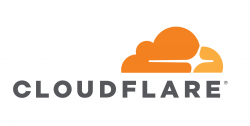Cloudflare Counters MPAA and RIAA’s ‘Rehashed’ Piracy Complaints

While the recommendations usually include well-known piracy sites such as The Pirate Bay, third-party services are increasingly mentioned. MPAA and RIAA, for example, wrote that Cloudflare frustrates enforcement efforts by helping pirate sites to “hide”.
The CDN provider is not happy with these characterizations and this week submitted a rebuttal. Cloudflare’s General Counsel Doug Kramer says that the company was surprised to see these mentions. Not only because they “distort” reality, but also because they are pretty much identical to those leveled last year.
“Most surprising is that their comments were basically the same complaints they filed in 2016 and contain the same mistakes and distortions that we pointed out in our rebuttal comments from October, 2016.”
“Simply repeating the same mischaracterizations for a second year in a row does not convert them into facts, so we are compelled to reiterate our objections,” Kramer adds (pdf).
There is indeed quite a bit of overlap between the submissions from both years. In fact, several sections are copied word for word, such as the RIAA’s allegation below.
“In addition, more sites are now employing services of Cloudflare, a content delivery network and distributed domain name server service. BitTorrent sites, like many other pirate sites, are increasing [sic] turning to Cloudflare because routing their site through Cloudflare obfuscates the IP address of the actual hosting provider, masking the location of the site.”
The same can be said about the MPAA’s submission, which includes a lot of the same comments and sentences as last year. That wouldn’t be much of a problem if the information was correct, but according to Cloudflare, that’s not the case.
The two industry groups claim that the CDN provider makes it more difficult to track where pirate sites are hosted. However, Cloudflare argues the opposite.
Both RIAA and MPAA are part of the “Trusted Reporter” program and use it frequently, Cloudflare points out. This program allows rightsholders to easily obtain the actual IP-addresses of Cloudflare-hosted websites that engage in widespread copyright infringement.
Most importantly, according to Cloudflare, is that the company follows the letter of the law.
“Cloudflare does not make the process of enforcing intellectual property rights online any harder — or any easier. We follow all applicable laws and regulations,” Cloudflare explained in its submission last year.
In its 2017 rebuttal, the company reiterates this position once again. Kramer also points to a recent blog post from CEO Matthew Prince, which discusses free speech and censorship issues. The message is that vigilante justice is not the answer to piracy, and all relevant stakeholders should get together to discuss how to handle these issues going forward.
For now, however, the USTR should disregard the comments regarding Cloudflare as irrelevant and inaccurate, the company argues.
“We trust that USTR will once again agree with Cloudflare that complaints implying that Cloudflare is aiding illegal activities have no place whatsoever in USTR’s Notorious Markets inquiry. It would seem to distract from and dilute the message of that report to focus on companies that are working to make the internet more cybersecure,” Kramer concludes.
Source: TF, for the latest info on copyright, file-sharing, torrent sites and ANONYMOUS VPN services.




Leave a Reply
Want to join the discussion?Feel free to contribute!